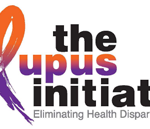Highlights of these materials include:
- A suite of resources comprised of continuing medical education (CME) activities, essays, videos, self-assessments, and quizzes on the recognition and mitigation of bias—both conscious and implicit—in patient and provider populations. This series of activities, some of which offer free CME credit, is designed to bring awareness to members of the healthcare community about the impact of conscious and unconscious bias on healthcare, and how bias contributes to healthcare disparities. While awareness of bias is crucial for all aspects of healthcare, we think it is especially useful for persons with lupus and those who care for them. These resources were developed to increase knowledge of how to recognize and mitigate bias in the diagnosis, treatment, and management of lupus for diverse patient populations.
- An online, medical education simulation game, called “Practice Improvement using Virtual Online Training” (PIVOT). Developed with clinicians at the University of California at San Francisco (UCSF) and programming experts from the University of California at Berkeley, PIVOT provides experiential learning, tests skills in real time, and offers feedback in state-of-the-art interactive case studies developed in cooperation with the ACR. Featuring case enhancements designed to simulate a patient examination and encourage retention of newly learned information, actual patients are incorporated using photos and videos. Users can order lab tests, and results are “delivered” in real time. A learning dashboard comparing user selections to best practices as determined by a panel of experts is offered at the conclusion of each case.
- A data vignette and four traditional case studies, created in response to requests from clinicians and educators. The data vignette, developed with the National Center for Cultural Competency at Georgetown University in Washington, D.C., offers educators the specifics of a traditional case with additional enrichments, including talking and discussion points and references.
- A total of 11 short teaching videos (each between two and seven minutes long) also is available and can be incorporated into existing teaching materials or used as freestanding tools by those interested in self-directed learning. An additional benefit to the library of short videos on our TLI website is access to advice from internationally recognized thought leaders in lupus, who are featured in the series.
- A four-part video series, called “The Role of Perspectives in Care.” This series examines how shortcuts in the thinking of both patients and physicians may impact the diagnosis and treatment of lupus. Practical examples for recognition and mitigation are available, making this a unique opportunity for online learning.
- The Lupus Companion smartphone app. Developed with rheumatologists at Emory University in Atlanta, this app is the first of its kind for patients with lupus. Available at no charge at the iTunes store, the Lupus Companion was designed using criteria from the Systemic Lupus Activity Questionnaire to improve quality of care by enhancing patient–provider communication during office visits. The app allows patients to track lupus symptoms, triggers, and flares between visits, and captures those data in a format that is useful to medical professionals. The Lupus Companion is currently available only for the iOS platform, but we hope to see it become available for Android systems soon.
These are just a few of the many resources available through TLI. The next challenge will be to increase awareness of where they, and other ACR educational tools, can be found. We are eager to know who is using them, and how, so we can share the impact of that educational outreach in this forum and with the wider medical community.
The Power of One
Along with the resources listed above, the TLI curriculum is in use. In fact, portions of the curriculum and our other resources have been used in the education of students at several institutions, including, but not limited to: Baylor College of Medicine in Houston; Emory University; Northwestern University’s Feinberg School of Medicine in Chicago; Stanford University in Stanford, Calif.; the UCSF Colleges of Medicine; and the Harlem Hospital Center in New York, N.Y. Educators at other institutions have reported plans to use TLI materials, and formal data gathering is underway to quantify the positive feedback heard anecdotally. This leads me to the last point I’d like to make this month about Advancing Rheumatology! and the impact one person can have in a program like TLI.

